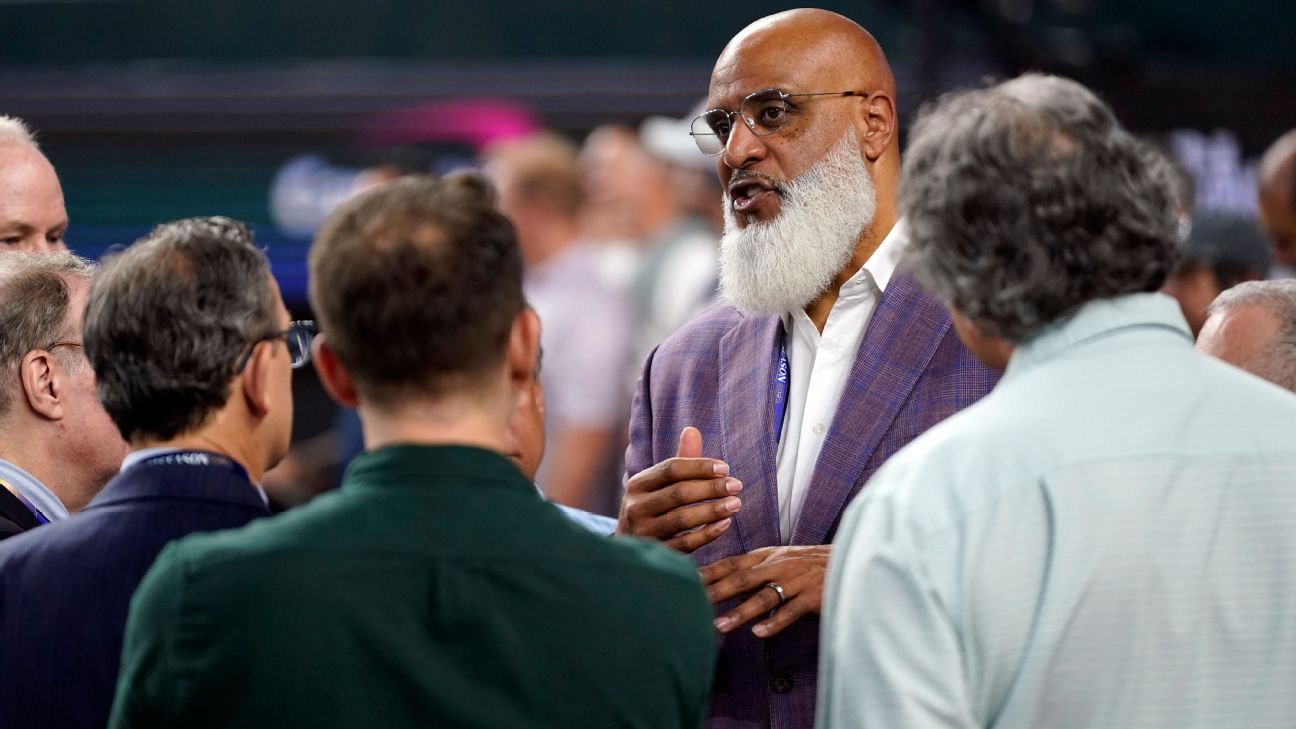MLBPA: Clark pay nearly doubled to $4.25M in '23
Written by I Dig Sports
Major League Baseball Players Association executive director Tony Clark received more than $4.25 million in compensation in 2023, with a $3.25 million salary and $1 million bonus, nearly doubling his total the previous year, according to a union financial report released Monday.
The revelation of Clark's salary, which was $2.25 million in 2022, comes in the wake of an uprising at the union in which attorney Harry Marino attempted to garner support from players to replace the union's deputy executive director, Bruce Meyer.
While Marino could not rally the necessary backing to oust Meyer, his efforts calling for an internal audit on union finances gained significant traction among player leadership, sources told ESPN.
Clark's salary is in the range of his contemporaries who have run major sports unions. Former NFLPA executive director DeMaurice Smith made $4.5 million in 2021 and $2.72 million in 2022. Former NBPA executive director Tamika Tremaglio received $3.1 million in her final year on the job. And NHLPA executive director Marty Walsh has a reported salary of $3 million after his predecessor, Donald Fehr, reportedly made $3.5 million per year.
In his first full year as executive director of the union in 2014, Clark received a salary of $1,993,525, according to the MLBPA's LM-2, an annual filing that details union spending. The salary was nearly double that of his predecessor, Michael Weiner, who died of cancer in November 2013. Weiner and Fehr, the previous union executive director, capped their salaries at $1 million going back to the 1990s. Clark is expected to receive slight increases in his annual salary for the remainder of his contract, which runs through 2027.
The union's revenues have grown significantly since Clark's appointment. In 2014, the MLBPA's total receipts were $64.7 million, according to the LM-2. Last year, the number was $191.8 million. The largest payments from 2023 include $49.6 million from Topps, $44 million from Fanatics, $28.6 million from the group licensing firm OneTeam Partners and $10.2 million from trading-card manufacturer Panini.
MLBPA spending on employee salaries has increased in recent years, according to the LM-2. In 2021, employees received $11.9 million, in 2022 it jumped to $15.4 million, and last year it was $16.6 million.
Marino, who helped organize minor league players and eventually integrate them into the MLBPA, worked for the union for less than a year before leaving amid clashes with top union officials. In a one-page letter he distributed to players advocating for the need of new leadership at the MLBPA, Marino said he would "trim the waste and excess" of the union's spending, writing, "Our job is to make you rich, not the other way around."
On a call two weeks ago that included members of the MLBPA's 68-player executive board, players went back and forth on a number of subjects, including Meyer's fitness for the job and the lack of communication from union officials. During discussions about the current leadership's fitness for the job, sources said, multiple player leaders said they were unaware that the union had given Clark a five-year contract extension in November 2022.
Clark's deal followed a 99-day lockout by MLB of the players who bridged most of the 2021-22 offseason. A bountiful winter, in which players received $3.9 billion in guaranteed money, followed the first year of the new deal, but free agent spending lagged in some areas this offseason, prompting player leaders to question Clark and Meyer's stewardship.
The contretemps died down about a week after Marino told Clark he had significant player support to be installed as the new deputy executive director. While the full body of minor leaguers continued to back him, major league player support waned, and the MLBPA's executive subcommittee -- made up of eight elected players -- eventually disavowed the efforts after members of the group initially backed Marino.
Still, multiple player representatives told ESPN they intend to call for an audit of the union's finances, with the hope for it to start in the near future.















 Phone: (800) 737. 6040
Phone: (800) 737. 6040 Fax: (800) 825 5558
Fax: (800) 825 5558 Website:
Website:  Email:
Email: 






